Belarusian Samahon: Folk Tradition or Health Hazard? – Belarus Photo Digest

Alcohol sales are an important source of revenue for the Belarusian state, which holds a monopoly on its importation and production. In hard economic times, however, many Belarusians have turned to a cheaper alternative – samahon. Literally translated as “self-distilled”, samahon is a highly potent moonshine brewed from grain and potato starch.
Even though samahon is officially banned, it continues to be brewed by generations of villagers. The law enforcement agencies regularly crack down on the most shameless “samahonshchyki” (bootleggers), often using drones to locate samahon breweries hidden deep in the woods. When such backcountry operations are uncovered, the offenders are hard to identify and thus often go unpunished. The police have turned a blind eye toward smaller-scale producers of moonshine, however.
The artisanal varieties of samahon are becoming a staple of agro-tourism. Today, Western tourists can taste legal samahon in the Bielavieža national forest, at the high-end ski resort in Lahojsk, or at the folk crafts museum Dudutki, whose founder has even appealed to the authorities to register samahon as a trademark.
By contrast, the contraband varieties are consumed largely by the locals and are estimated to result in more than 2,500 deaths annually, according to the Belarusian Statistics Office. Cleaning liquids, perfume, and aftershave have all been found mixed into contraband moonshine.


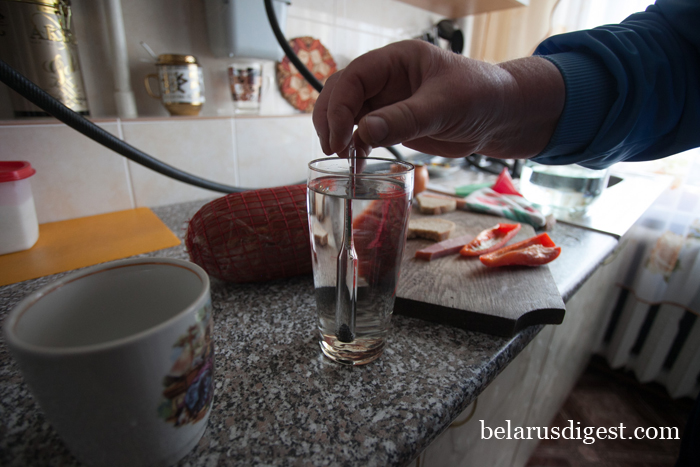
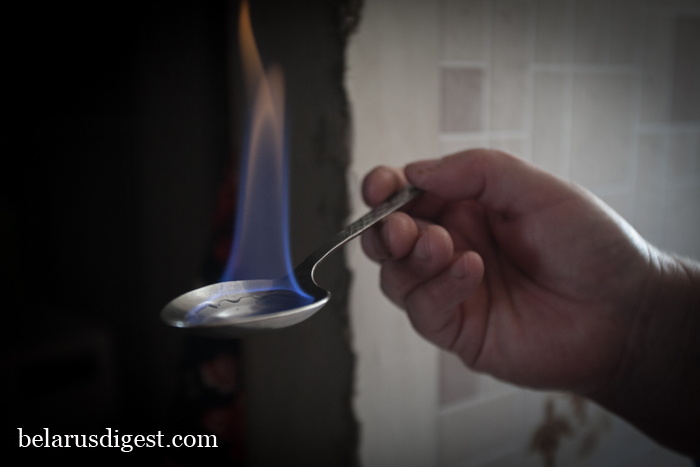
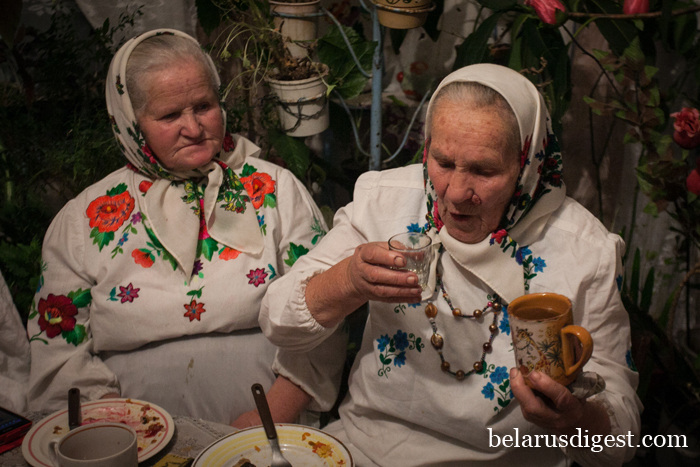
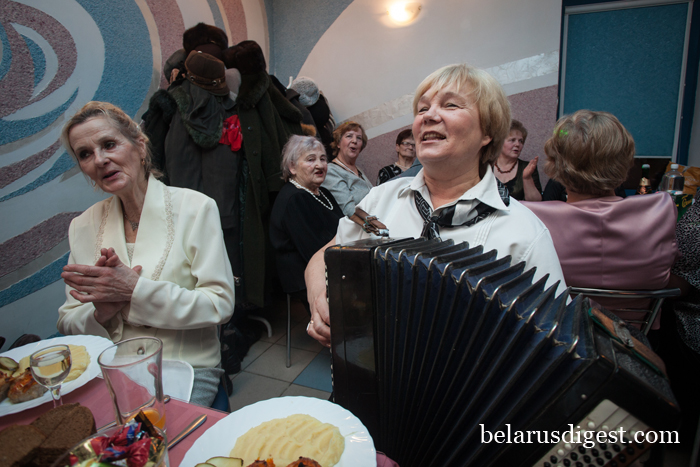
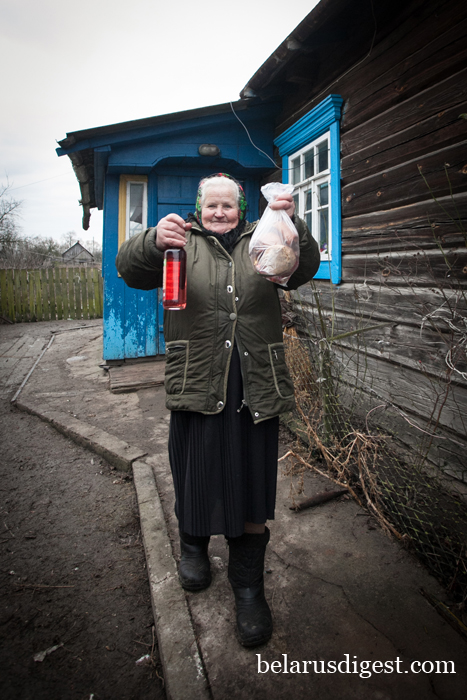

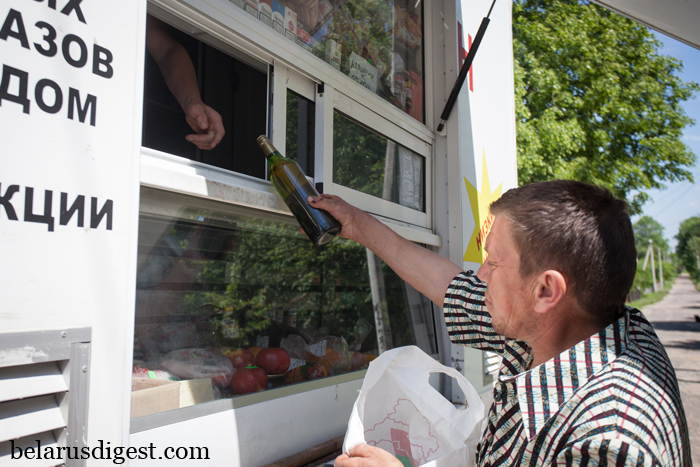
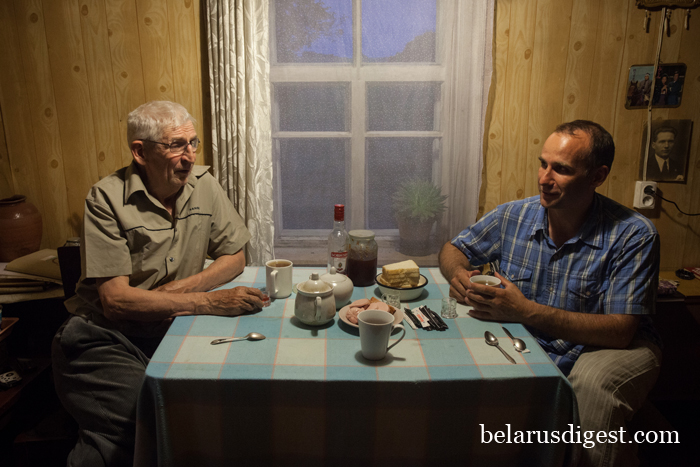
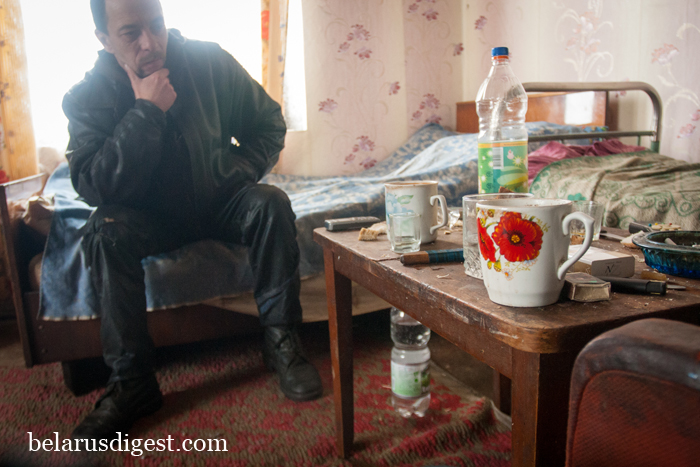
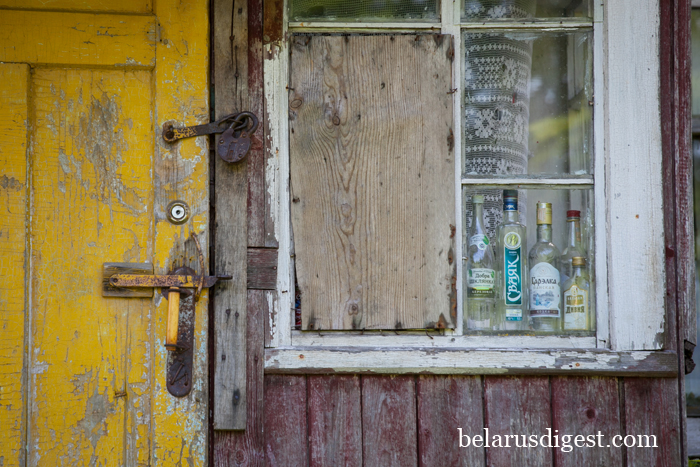
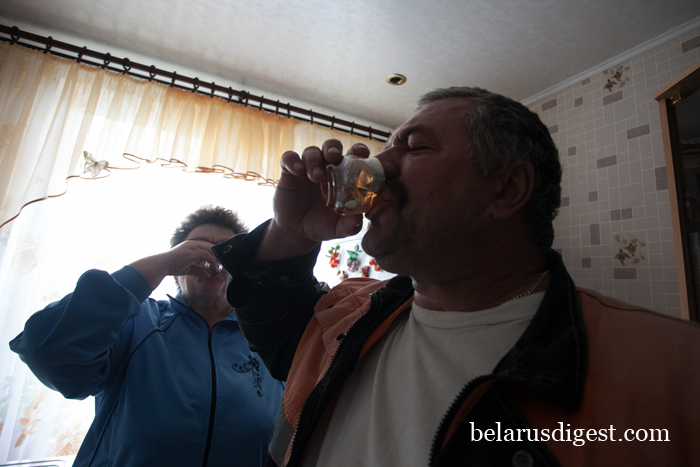
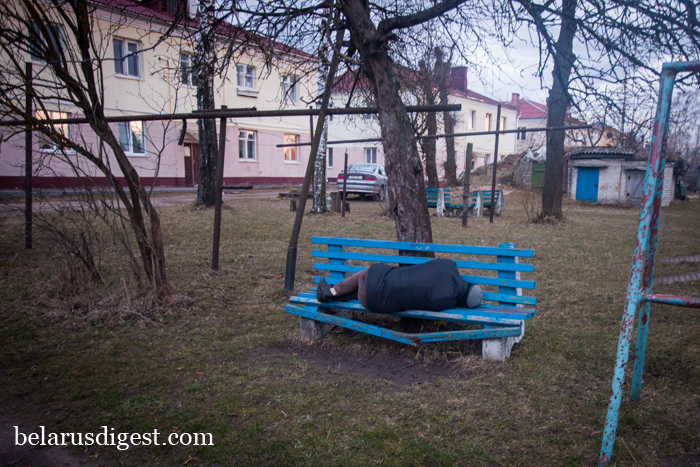
About the photographer: Siarhei Leskiec is a freelance photographer whose work focuses on everyday life, folk traditions, and rituals in the Belarusian countryside. Originally from Maladzeczna region, he received a history degree from Belarusian State Pedagogical University.








